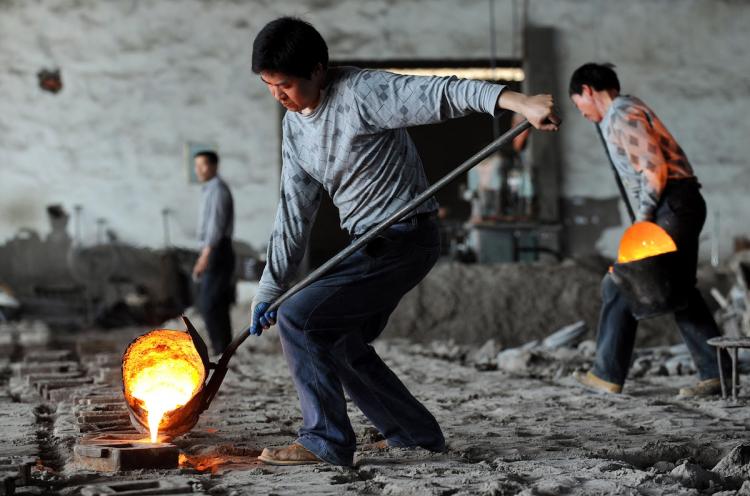Chinese Steel Plants in the U.S., Comes with Controversy
Anshan Iron and Steel Group as not had a welcoming reception in the company’s attempt to build plants in the U.S.

Chinese workers pour molten steel into the casters at a small iron and steel mill in central China's Anhui province. Anshan Iron & Steel Group, China's fourth-largest steel maker, has not warm welcoming in attempting to build steel plants in the US. STR/Getty Images
|Updated:




